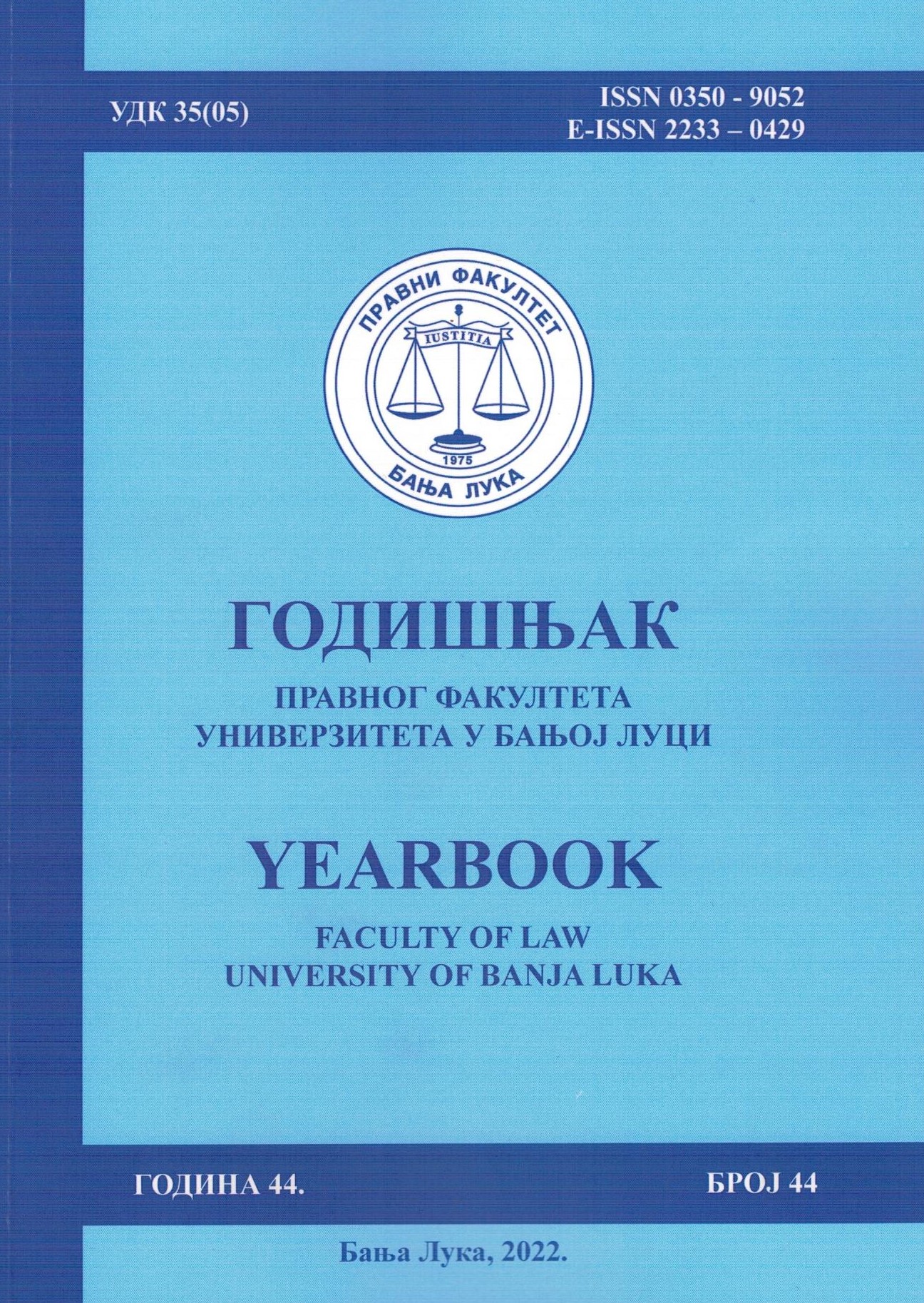BOSNIA AND HERZEGOVINA'S READINESS FOR IMPLEMENTATION EUROPEAN SOLVENCY DIRECTIVES II
Abstract
The European Union introduced Solvency II - Directive 2009/138/EC of the European Parliament and the Council on the establishment and performance of insurance and reinsurance activities (hereinafter: Solvency II), in order to ensure the financial stability of insurance companies, setting stricter requirements than existing regulations. The application of the new directive in the countries of the European Union began at the beginning of 2016. In countries for which the implementation of this directive is not binding, because they are not members of the European Union, it is necessary to harmonize national regulations and laws that regulate the supervision and management of insurance in accordance with Solvency II.
As a signatory to the EU Stabilization and Association Agreement, Bosnia and Herzegovina has the obligation to introduce European Union regulations into national legislation. The introduction of this regulation in Bosnia and Herzegovina will imply major changes in the financial, organizational and legal aspects of insurance companies. The new regulation will require new rules in the form of a solvency margin, a completely different holistic approach to risk management and transfer, investments by insurance companies, and the introduction of key functions. In the new legal framework, holders of key positions are subject to strict regulations regarding professional qualifications and personal reliability. Adequate preparation of domestic insurance companies for the application of Solvency II is necessary, in accordance with the prescribed guidelines.
In the paper, we pointed out the most important parts of Solvency II, the preparatory actions for the introduction of this directive into national legislation, the harmonization of Bosnia and Herzegovina's regulations with European ones, the steps that Bosnia and Herzegovina must take in order to fully introduce this directive into its legislation.

This work is licensed under a Creative Commons Attribution-NonCommercial-NoDerivatives 4.0 International License.



